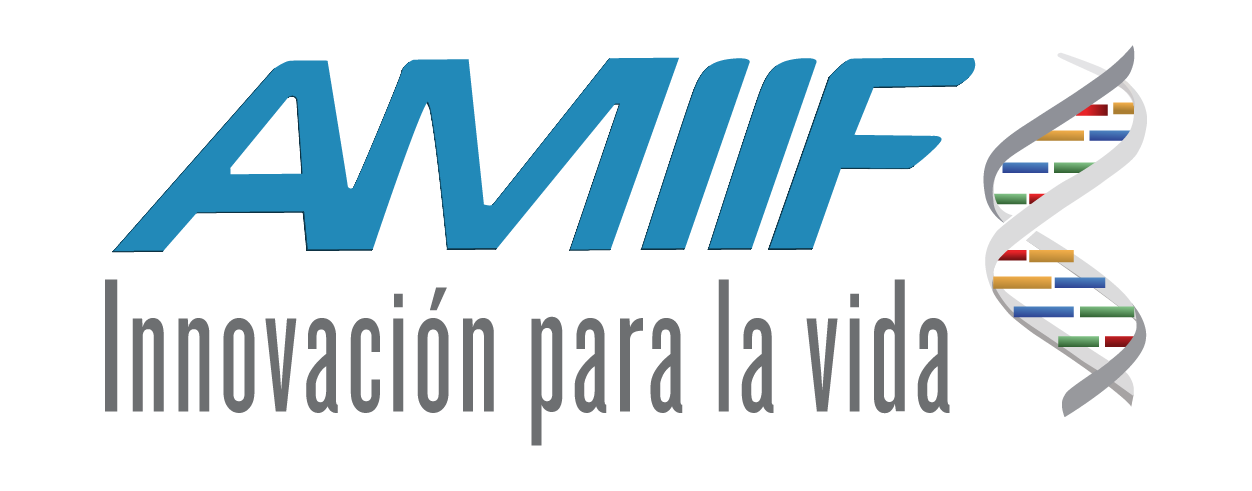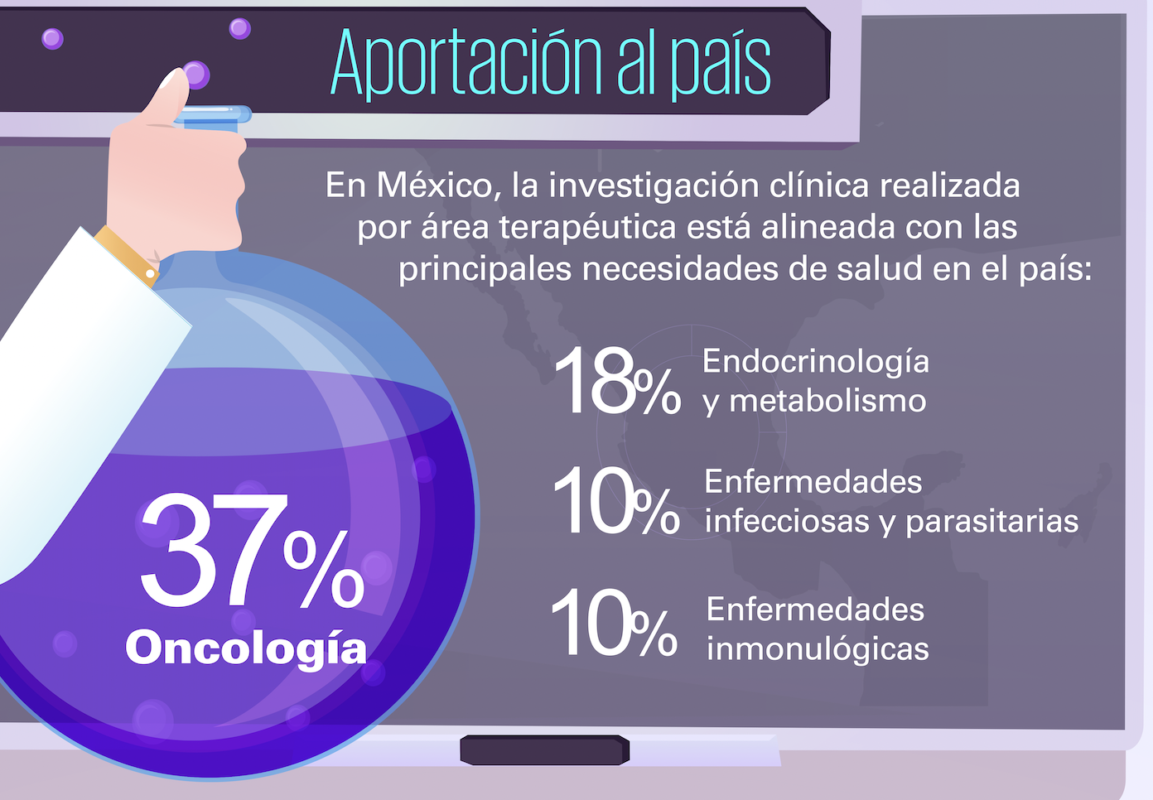In a time of economic and social challenges heightened by COVID-19, the health innovation industry is a determining factor in Mexico’s economic and social growth.
Clearly, the COVID-19 pandemic drew attention to research and development in regards to solutions required to face the pandemic and its global threat. The results achieved in record time will go down in history as the essential collaboration that ensured achievements between sectors. As of February 2022, more than 12 billion vaccines against COVID-19 have been produced, and more than 60 percent of the world’s population received at least one dose in the biggest vaccination campaign in history. In 2022, Mexico also began to take a firm innovative step when COFEPRIS, Mexico’s regulatory authority in charge of national health policy, approved two drugs to treat patients infected with this coronavirus.
However, COVID-19 did not distract the biopharmaceutical industry from its efforts to continue researching and developing areas that require equal attention and directly affect our country.
According to the study The innovation industry in Mexico. Contribution to Health carried out by KPMG in collaboration with the Mexican Association of Pharmaceutical Research Industries (AMIIF), investments in healthcare have experienced a multiplier effect. For example, in Mexico, healthcare services generate close to a 30 percent ROI. Eight out of 10 companies believe that focusing on innovation has become more relevant after the COVID-19 disruption.
The economy contracted and the pace of growth fell because of the pandemic; amid this scenario, AMIIF affiliates continue to bet on innovation by investing in health and medical research.
The health innovation industry is known for its research and development (R&D). In 2020 alone, investment in medical research stood at US$250 million with a steady CAGR (compound annual growth rate) of 7.3 percent over the last five years.
At the end of 2020, AMIIF affiliates had completed 1,800 pharmaceutical and medical research projects focused on oncology, endocrinology and metabolism, infectious, parasitic and immunological diseases, neurology, cardiology and gastroenterology.
This medical research work was conducted in 62 associated research centers, primarily in Mexico City (26 percent), Jalisco (18 percent), Aguascalientes (8 percent) and Nuevo Leon (8 percent). When speaking of medical research, we are talking about economic investment, regional research and development by innovation clusters, technology transfers and early access of Mexican patients to innovative therapies. Innovation only makes sense when it reaches the people who need it most.
Benefits for the Population
The innovative pharmaceutical industry’s commitment to nurturing a healthy society is not limited to diseases. It also provides significant job opportunities while attracting investment linked to development.
AMIIF affiliates directly employ more than 48,000 people. This number is equal to 46 percent of all jobs in the pharmaceutical industry. Gender equity also prevails among AMIIF affiliates, as 49 percent of employees are women and 51 percent are men.
It is also important to note that management positions held by women in AMIIF affiliates are 6 percent above the international average of the International Labor Organization (ILO), clearly evidencing the efforts made by AMIIF affiliates to promote equity and inclusion in their organizations.
Medical Education, Corporate Social Responsibility
The innovative pharmaceutical industry has emphasized education and update courses for the medical community that has direct contact with the population by teaching 1,714 courses in more than 20,000 hours of training. Sixty percent of these courses are taught on online platforms.
AMIIF has completed 70 projects collaboratively with educational institutions and signed 38 agreements with universities, benefiting more than 221 individuals with professional internships and academic scholarships.
By investing billions of dollars and thousands of scientist hours, the health innovation industry pushes the limits of science, fosters medical progress, and contributes to the prosperity of society. However, millions of people live with unmet healthcare needs, which is why the industry continues to work, research, and develop new therapies. Today, there are more than 8,000 medications in clinical development around the world.[i] Efforts in R&D only make sense if they reach the people who need it when they need it most.
The KPMG study shows that in challenging business conditions and an industry governed by strict regulatory requirements and high standards, AMIIF affiliates continue to make the boldest and riskiest investments to change people’s lives. We must bring that bold audacity to the rest of the healthcare system. We must continue to promote competitive value chains and access to innovative therapies in Mexico that contribute to improving the healthcare system’s indicators and results.
[i] 1,213 drugs for infectious diseases; 2,740 cancer drugs; 1,498 for neurological disorders, 800 for rare diseases, and 503 for diabetes, just to name a few.
Previously published in Mexico Business




